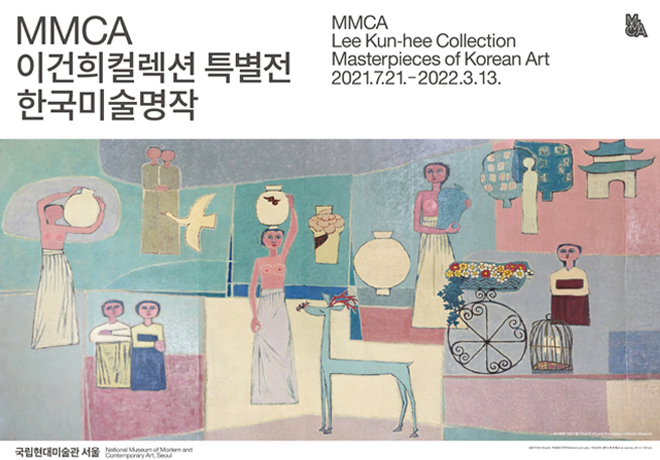Reconstruction of
Story 4 introduces films where questions about the fundamental relationship
between life and stories directly translate into cinematic narratives. When
incidents in someone’s life are deemed accidental outcomes of the consciousness
and actions of humans, who are beings cognizant of time, then stories, which
are aggregates of incidents, themselves strike one as indefinable mysteries.
Just as one realizes the incompleteness even of actual events the moment one
recalls them in order to recount them, questions about the act of telling
stories give birth to cinematic narratives as well.
Seeing Alain
Resnais’s movies as originating from his interest in things that occur in the
head, or the monstrous, chaotic, and creative mechanisms of the mind, Gilles
Deleuze has stated that emotions simultaneously circulate from one side to
another and change endlessly and that thoughts constitute non-linear time that responds to
feelings. Resnais’s works have represented the mental mechanisms where the
stories of ordinary lives occur and recur since the 1980s, at the apex of which
are Smoking/ No Smoking. Writing under a pseudonym, Søren Kierkegaard, who
established the foundation of modern existentialism, hoped in Enten-Eller (Either/Or) that readers would view from their own thoughts
while reading only the literal meanings. Likewise, Resnais’s films only show
aspects of the world, which can develop in either this or that way. As with
Kierkegaard’s idea that individuality is the truth, individuality may be the
key to the occurrence of all incidents and the starting point of tragedy as
well.
In order to speak
only of what he knows, Nanni Moretti has starred in nearly all of his films.
Even when he plays the roles of characters besides himself such as the
mathematics professor Michele in Bianca(1984), legislator from the Italian
Communist Party and water polo player Michele in Palombella Rossa(Red Wood
Pigeon, 1989), and Catholic priest in La messa è finita(The Mass Is Ended,
1985) and even when he appears as his own self, a movie director, in works such
as Sogni d’Oro(Sweet Dreams, 1981), Aprile(April, 1998), and Caro Diario(Dear
Diary, 1993), he always seems to be none other than Moretti. Just as he views
his film director self scornfully in Sogni d ’Oro and painfully screams, “We
are the same and yet different, we are different and yet the same. Mama! Come
get me!” in Palombella Rossa, his works are constructed based on an attitude of
facing his own contradictions as an individual being while criticizing the
foolishness of Italian society and politics. Because all personages including
himself can become objects of the satire of the times, the lines, instead of
representing the psychology of characters placed in dramatic situations, take
on the form of discourses reflecting their thoughts. Just as irony naturally
takes on the form of comedy, his movies, which point out forms of language and
thought, unexpectedly speak of the next works that he is envisioning or show
scenes from the scenarios that he is working out in his mind. Like movies about
the moral growth of the self struggling against foolish conventional ideas,
Moretti’s works criticize human weaknesses that can turn people into monsters
depending on momentary choices yet also reveal in their entirety the most
private aspects of the director himself, who is fond of sweet pastries and a
shoe collector. As such, they do not fall into the danger of packaging
subjective viewpoints as objective truths.
In director Hong
Sang-soo’s film Hill of Freedom(2014), the protagonist holds and reads all
letters that have arrived during her absence, only to drop them unintentionally
to the floor, thus scattering them and confounding their temporal order. As in
this example, the temporal sequence of the incidents that occur is not
important in his movies. Everything can happen in diverse directions at once,
and stories, as if to prove this variability, return to certain points in time
and develop repeatedly. If Alain Resnais’s Smoking/No Smoking show the mechanisms
of event progression that differ according to either/or choices, Hong Sang-soo’s works convey the ambiguity of
tales where characters are both parties involved in incidents and narrators of
stories. If Nanni Moretti casts problems with conventional wisdom in his
personages’ discourses while directly criticizing the acute political reality
of Italy, Hong Sang-soo removes historicity in the
official sense that can be endowed on characters. Figures in director Hong Sang-soo’s films are each trapped in their time to the extent that it is
impossible to figure out the eras in which they are living. They circulate in
very unstable and illogical time that is inherent in their emotions.
Though they differ
completely from one another in the ways of telling tales and interpretations of
characters’ desires, films by the three directors to be screened in
Reconstruction of Story 4 depict lives that can develop differently according
to the actions and thoughts of characters who create stories. The unique ways
in which these three directors study and reconstruct tales of lives instead of
speaking of lives seem to be the fruits of their respective insights into human
desire or the relationship between the self and society.
